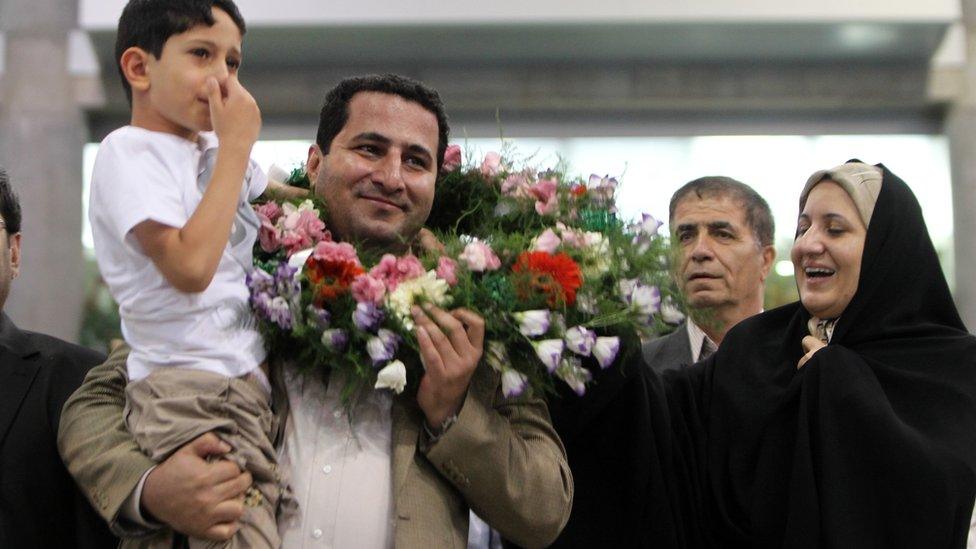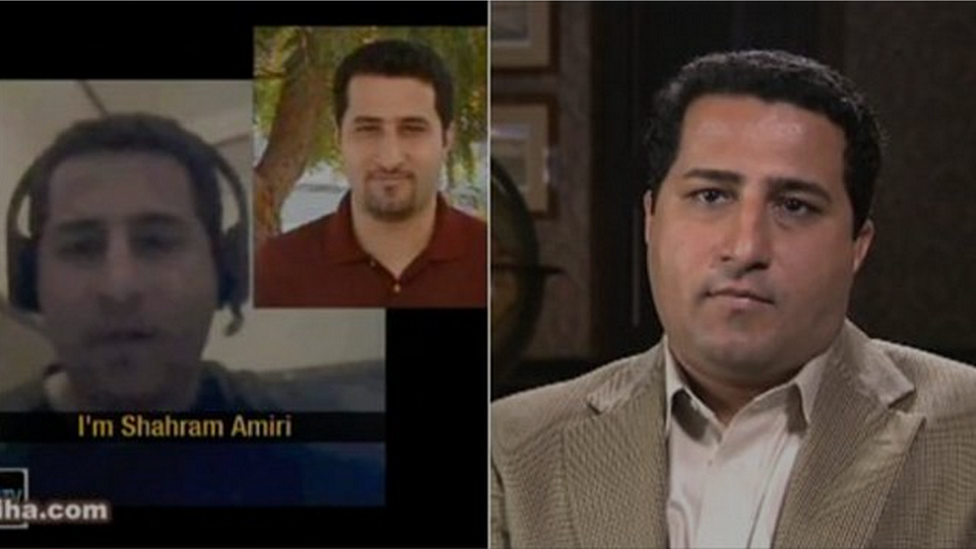Iran family fears for Shahram Amiri, detained scientist
- Published

Shahram Amiri was detained after being welcomed back to Tehran from the US in 2010
The father of an Iranian nuclear scientist detained since returning from the United States in 2010 says he fears for his son's safety.
Speaking about the case for the first time, Asgar Amiri told BBC Persian he has not been allowed to see or speak to his son for over a year.
Shahram Amiri is being held at a secret location, far from the family home.
Mr Amiri, who is in his 30s, surfaced in the US after disappearing on a pilgrimage to Mecca in 2009.
The case made headlines around the world when Mr Amiri appeared in a series of video recordings, apparently made in the US, a year after his disappearance.
In the first, he claimed he had been kidnapped by US and Saudi agents and put under "intense psychological pressure" to reveal sensitive information in return for asylum.
In the second, he said he was studying and living freely in Arizona, and then finally he announced that he had escaped from US custody and wanted to go home.
Mr Amiri, who some reports said had in-depth knowledge of Iran's nuclear programme, flew back to a hero's welcome in Iran in July 2010, and a tearful reunion with his wife and young son.
Blacked-out windows
When the videos emerged, US officials told the BBC Mr Amiri had defected of his own free will and provided "useful information" to the United States.
Unconfirmed reports at the time suggested his family had come under pressure from the authorities in Iran to persuade him to return home.
After the initial blaze of publicity surrounding his return, Shahram Amiri disappeared from sight, and was later reported to have been given a long prison sentence.

Three videos of Shahram Amiri giving conflicting accounts of his circumstances emerged when he was in the US
Asgar Amiri confirmed that his son had been detained but said that until last year the family had been in telephone contact with him and were allowed to make the 500km (310 miles) journey from their home in the western Kermanshah region to visit him.
"The last time I saw my son was last September," he told the BBC.
"They called us from a restricted number… and told us to get ready to leave for Tehran the following day. A car with blacked-out windows picked us up. We couldn't see where we were going but they took us to some kind of military barracks."
Mr Amiri says his son was brought in wearing a blindfold and that he did not look well.
"I asked Shahram if he was kept in the same building. He said: 'No, I am being kept somewhere else'."
Mr Amiri said the visit lasted for a couple of hours, but that it was difficult to have a proper conversation because they feared the room was bugged.
Since that last meeting, Mr Amiri says he has had no news of his son.
"I have talked to all the major government offices, I have sent letters to everyone," he said. "But there has been no response."
'What compassion?'
Mr Amiri said after his son was detained, he had received a letter from a parliamentary commission reassuring him that Shahram would be treated with "Islamic compassion".
"I showed the authorities this letter and asked them about this Islamic compassion," he said.
"What compassion? His telephone line has been cut and we haven't had a meeting with him for a year now. They told me they didn't care about this letter."
"[They] told me my son was forgiven, but they lied to me," he said.
Mr Amiri said he knew he was taking a risk speaking publicly, but was so desperate for news of his son that he felt it was the only option left.